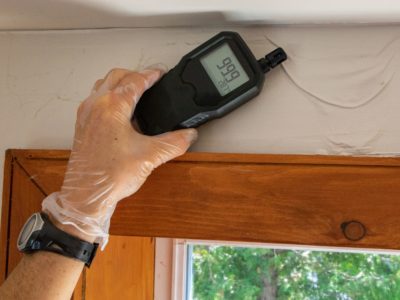People in alcohol and drug recovery will soon have access to housing support, helping to break the cycle of addiction and improve health outcomes.
Up to £53 million will be allocated to 28 local authorities across all regions of England with the greatest need.
The funding will allow for local authorities to create new housing support schemes tailored to meet local need.
People in treatment for drug and alcohol dependence are often easier to support if their housing needs are addressed at the same time, as there is a strong link between having a stable home and improved treatment outcomes.
Examples of how the funding will be spent include specialist housing caseworkers supporting people in drug and alcohol treatment to access and maintain safe and suitable housing.
Support will also look to help people create sustainable and long-term recovery by maintaining independent living.
Health and Social Care Secretary Steve Barclay said:
“We’re supporting those recovering from drug and alcohol addiction by addressing the link between improved treatment outcomes and a stable home.
This £53 million funding, targeted to local authorities with the greatest need, will support the government’s ambition to reduce overall drug use to a historic 30-year low.”
Health Minister Neil O’Brien said:
“Alcohol and drug dependence can have a devastating impact on the lives of people, their families and wider society.
It is essential to break this cycle of addiction.
The £53 million housing support funding will play a key role in testing how housing can help break this cycle, improve recovery and help people to live happier and healthier lives.”
In Manchester, specialist housing caseworkers will work out of three prevention hubs to be established across the city, providing a rapid response to housing issues that may affect people in substance misuse treatment securing or maintaining accommodation over the long term.
In Lancashire, staff from across housing, drug and alcohol and health services will receive a programme of training to develop skills in substance misuse and housing related support and to will create a joined-up system across other organisations and public services, offering an improved experience for people experiencing homelessness.
In Wigan, peer mentors with past experience of drug and alcohol treatment will provide support to people struggling to maintain independent living to sustain their accommodation and improve recovery outcomes.
These projects will also expand our evidence base on treatment and recovery, with learnings helping to inform and develop future policy, in partnership with the Department for Levelling Up, Housing and Communities.
Director of Addictions and Inclusion, Rosanna O’Connor said:
“The need for better housing and employment support for people dependent on drugs and alcohol is a core part of the current 10-Year national drugs strategy.
We have known, for too long, that people in drug treatment with housing problems do less well in their recovery.
What we know less about is how to address these problems. For the first time, dedicated funding is available to improve housing support.
The Office for Health Improvement and Disparities and the Department for Levelling Up, Housing and Communities are working closely with 28 local authorities up until 2025 to test and learn from specific approaches to housing support for this population, and Government will take the learning from these areas forward as part of its work to implement the Drugs Strategy.”
This supports recommendations from Dame Carol Black’s independent review, outlining housing support as a key strand needed to improve the effectiveness of drug prevention and treatment to help more people recover from dependence.
It will support the government’s commitment to its 10-year drug strategy, which sets out the ambition to reduce overall use towards a historic 30-year low, getting people into treatment and deterring recreational drug use.
This aspect of the wider strategy is part of a total package of £780 million to rebuild drug treatment and recovery services, including for young people and offenders, with new commissioning standards to drive transparency and consistency.
Dame Carol Black statement:
“Addressing the housing-related needs of people in treatment with drug and alcohol dependence was a critical part of my Independent Review of Drugs.
I am pleased that government is working with 28 local authorities across England to test the effectiveness of housing support interventions over the next 3 years.
Learning from these areas will inform and drive forward the 10-Year Drugs Strategy, making the case for safe and supportive housing in recovery from addiction.”























Comments